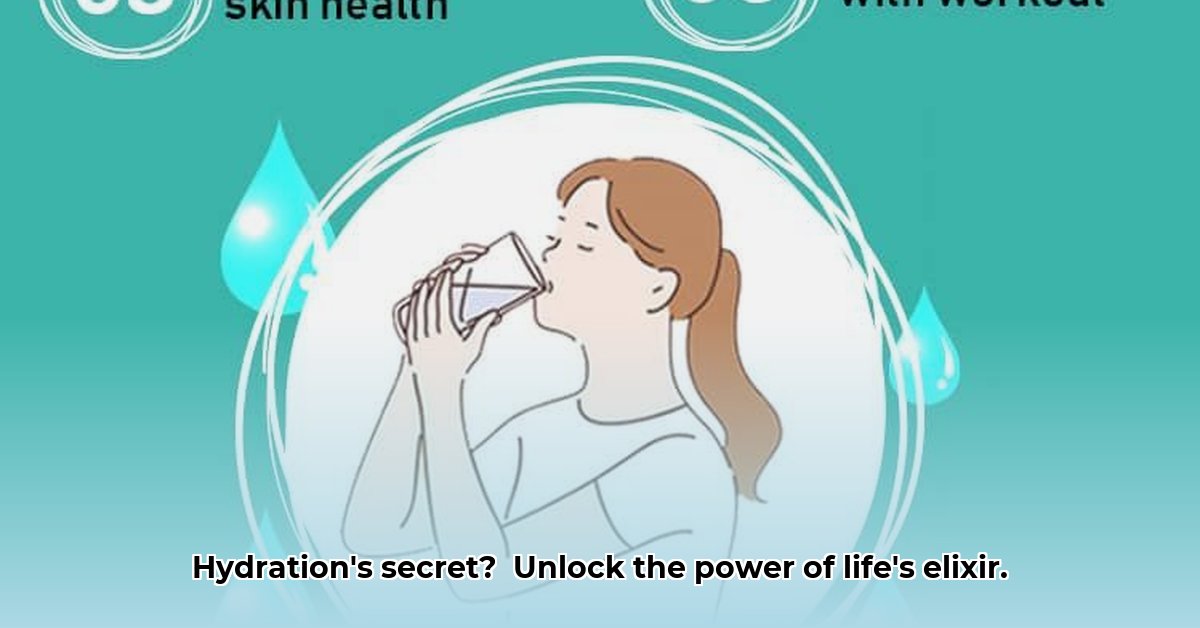
Benefits of Living Water: A Critical Examination
The term "living water" lacks a precise scientific definition, often encompassing minimally processed spring water, ionized water, or water with purportedly enhanced properties. While proponents tout numerous health benefits, scientific evidence supporting these claims is limited and requires further investigation. This article critically examines the purported advantages of "living water," separating substantiated facts from marketing hype.
What are the Claimed Benefits of "Living Water"?
Consumers often associate "living water" with several purported health benefits:
- Increased Mineral Content: Some "living water" sources boast higher levels of essential minerals like magnesium and calcium compared to purified water.
- Lower Oxidation-Reduction Potential (ORP): A lower ORP is sometimes interpreted as possessing stronger antioxidant properties, which may help protect cells from damage. (ORP measures a substance's ability to oxidize or reduce other substances).
- Enhanced Hydration: Proponents suggest that "living water" contributes to superior hydration compared to ordinary tap or purified water.
However, it is crucial to note that these alleged benefits are frequently presented without robust scientific backing.
The Scientific Evidence: A Balanced Perspective
While some spring waters naturally contain higher mineral concentrations than purified water, this doesn't automatically equate to superior health outcomes. Dr. Anya Sharma, PhD, a nutritionist at the University of California, Berkeley, emphasizes that "the mineral content of water is typically insufficient to significantly impact overall mineral intake. A balanced diet remains the primary source of essential minerals for optimal health."
Similarly, although a lower ORP might suggest increased antioxidant capacity, there's currently insufficient evidence directly linking lower ORP in water to tangible health improvements in humans. Further research is needed to establish a clear cause-and-effect relationship.
Purity, Safety, and Source: A Crucial Consideration
The source and purity of any water, regardless of its designation as "living water," are paramount. Even naturally mineral-rich water can be contaminated with harmful substances. Dr. David Lee, MD, a leading expert in environmental health at Stanford University, cautions that "consumers must carefully consider the source and any available certifications verifying the water’s purity and safety. Unregulated sources pose significant contamination risks." Simply labeling water as "living" doesn't guarantee its safety or purity.
Making Informed Decisions: A Practical Guide
Consumers should prioritize informed decision-making when choosing their water source. Look for:
- Transparency: Verify the origin and treatment processes of the water.
- Certifications: Check for independent certifications ensuring safety and purity standards.
- Mineral Content: Review the water's mineral composition, but remember that dietary sources usually provide a more significant mineral contribution.
- Scientific Evidence: Avoid falling prey to unsubstantiated marketing claims. Be wary of terms like "structured water" which lack scientific validation.
The Bottom Line: The Need for Further Research
The purported health benefits of "living water" require further scientific investigation using rigorous methodologies and clearly defined criteria. Large-scale, well-designed studies are needed to verify or refute the existing claims. A balanced approach is necessary, carefully weighing anecdotal evidence against established scientific knowledge. As Dr. Sharma notes, "It's imperative that we move beyond anecdotal evidence and marketing claims and rigorously test the specific hypotheses regarding the purported health benefits of various ‘living waters’."
Key Takeaways:
- While some "living water" may offer higher mineral content or potentially lower ORP, the direct health benefits are largely unproven.
- The purity and safety of the water source are critical considerations, regardless of marketing claims.
- Adequate hydration is essential, but it doesn't necessitate consuming only "living water."
- A balanced diet remains the best source of essential minerals.
- Further research with rigorous methodology is crucial to evaluate the true health impact of different water types.